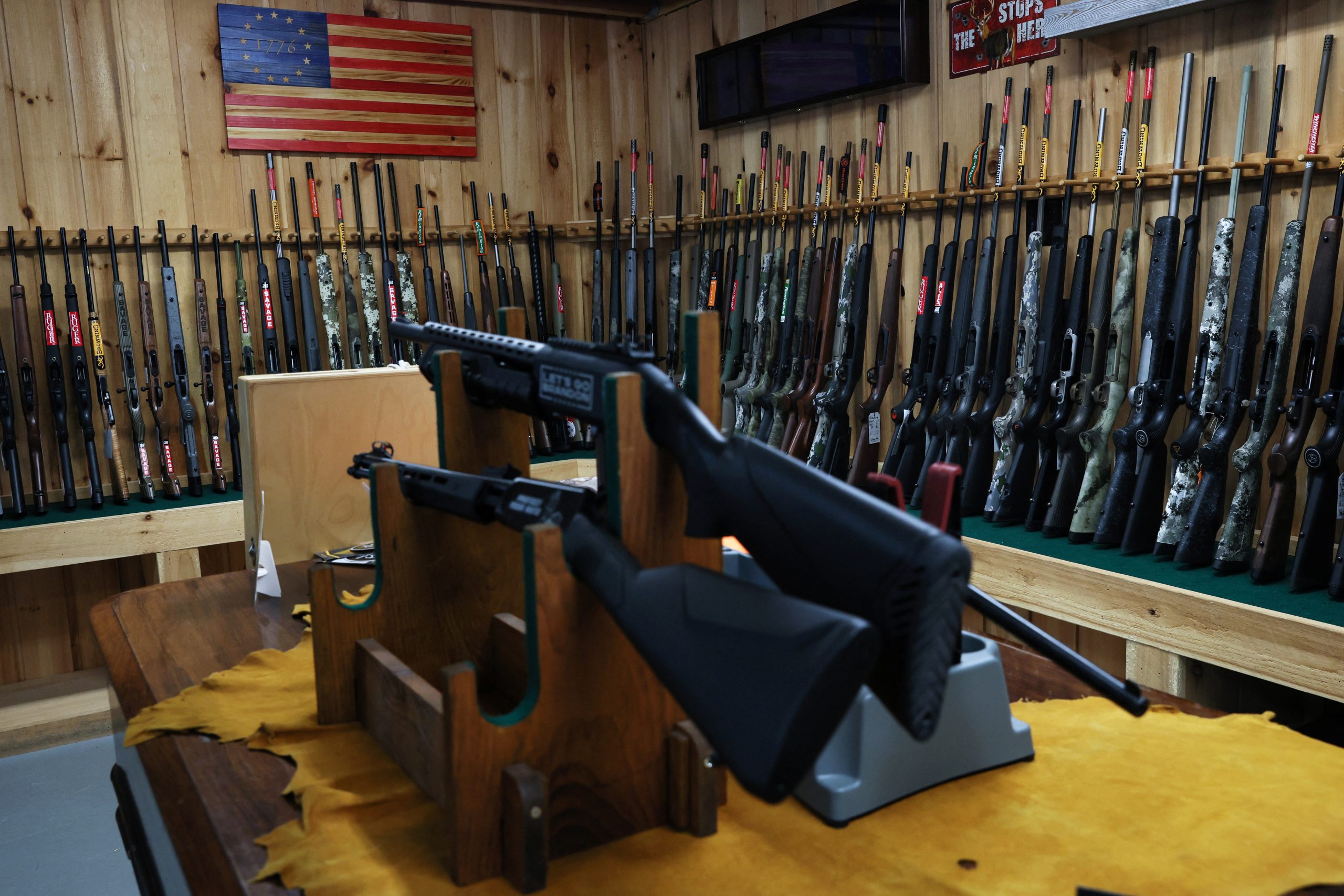
[elfsight_social_share_buttons id=”1″]
Gunfire has long echoed in New York’s Adirondack Mountains. Children blast skeet from the sky after school and parents mingle and compete at the shooting range. In the fall, hunters in fluorescent orange fan through the forests, stalking deer.
So June’s landmark ruling by the U.S. Supreme Court establishing a constitutional right to carry weapons in public seemed like a vindication of an upstate, gun-centric way of life.
The feeling was short-lived.
The ruling by the court’s conservative majority appalled Democratic leaders across the country who said it would lead to more gun violence.
In response, New York lawmakers scrapped the parts of its gun-license laws the court found unconstitutional and created a long list of “sensitive locations” and “restricted locations” that turn many places into gun-free zones, including big chunks of the Adirondacks.
Having any kind of firearm in these places will be a felony crime after Sept. 1. California, New Jersey, and other states are watching closely as they draft similar plans. Powerful gun-owners’ rights groups see any infringements on Americans’ most newly affirmed right as targets for lawsuits.
“It pretty much means I’ve got to leave the firearm at home,” said Rick Bennett, who sells guns and fishing tackle from his store in the hamlet of North Creek.
The Supreme Court ruling had allowed for gun bans in limited sensitive areas, such as schools or courthouses. The New York law went much further, adding hospitals, bars, concert venues, and also parks. Bennett’s house is in the middle of the largest park in the contiguous United States: Adirondack Park, a mountain range covering a fifth of the state’s landmass. It is larger than several U.S. states, and home to 130,000 people and countless bobcats, beavers, muskrats, and cottontail rabbits. Bears patrol the hiking trails.
People who run summer camps, which in themselves are a new sensitive location, wonder if popular riflery courses for children are now a crime. Up at Mount Van Hoevenberg, a former Winter Olympics venue inside the park, it is unclear how the annual biathlon, a sport mixing skiing with target shooting, can proceed. It will be a felony to have a gun at sports venues.
Jeffrey Dinowitz, a Democratic assembly member from the Bronx in New York City, said the bill he co-sponsored was a reasonable response to what he called a wrongly decided opinion by “highly politicized, right-wing justices.”
‘Going to be lawsuits’
Bennett said he got his concealed-carry gun license in 1980 and loves heating up canned venison from last season’s hunt in a skillet.
His loaded Kimber 9mm pistol was tucked as usual into his waistband as he drove through the mountains across a patchwork quilt of different land types. He worried that if he gets pulled over in the wrong place one day and is convicted of the new gun possession felony, he will lose his guns.
For miles, the paved road crossed swatches of private property, which lawmakers said will automatically become restricted locations if owners don’t post signs saying guns are welcome.
The new law would exempt people “lawfully engaged in hunting activity,” but deer season, a few weeks in the fall, was months away.
At Calamity Jane’s, a store that sells guns in the region, co-owner Jane Havens broadcast the July 1 debate in the legislature to browsing customers.
Dinowitz and other bill sponsors were unequivocal: Adirondack Park was included.
“A guy from the Bronx doesn’t have a clue what the Adirondack Park is,” said Havens, who was born and raised in the mountains.
The week after the law passed, the office of Governor Kathy Hochul, also a Democrat, said state-owned Forest Preserve land in the park, about two-fifths of the park’s area, should not be considered sensitive locations, contradicting the bill’s sponsors. More than half of the park is private land.
“They rushed this through without anyone getting to vet it,” said Dan Stec, a Republican state senator from the park’s south. He proposed amending the law to exclude Adirondack Park public lands. Dinowitz said he opposed the amendment, while Hochul’s office did not respond to that question.
County clerks involved in the gun-license system and at least one Adirondacks district attorney say the law is confusing. Residents don’t know what to think.
“I’m not even sure that you could actually stop and use the bathroom if you had to between you and the gun range,” said John Bowe, president of the Dunham’s Bay Fish and Range Club.
The plaintiffs who won the pro-gun Supreme Court ruling live just south of the Adirondacks, including Tom King, the president of the New York State Rifle and Pistol Association, the state affiliate of the National Rifle Association.
“I have gotten hundreds of calls from people from the Adirondacks,” King said, “and all I can say is that there are going to be lawsuits.”
Copyright 2022 Thomson/Reuters
